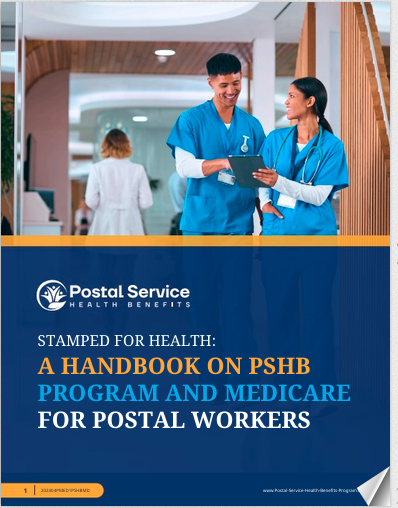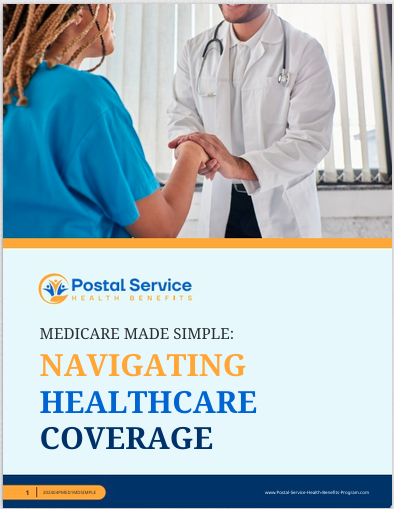Key Takeaways
- USPS retirees must be vigilant to protect themselves from Medicare fraud, which includes false claims and identity theft.
- Understanding common fraud schemes and proactive measures can safeguard your personal information and ensure Medicare resources are used appropriately.
Protection from Medicare Fraud for USPS Retirees
Medicare fraud is a serious issue that affects millions of beneficiaries every year. It involves the misuse of Medicare funds through false claims, identity theft, and other deceptive practices. Understanding how to protect yourself from Medicare fraud is crucial to safeguarding your personal information and ensuring that Medicare resources are used appropriately. This guide outlines the key aspects of Medicare fraud, common schemes, and practical steps USPS retirees can take to protect themselves.
What is Medicare Fraud?
Medicare fraud occurs when individuals or organizations deceive Medicare to receive improper payments. This can take many forms, including submitting false claims, billing for services not provided, and using someone else’s Medicare number. Medicare fraud not only costs taxpayers billions of dollars each year but also undermines the integrity of the healthcare system and can potentially harm patients.
Common Types of Medicare Fraud
Understanding the common types of Medicare fraud can help you recognize and avoid potential scams. Some prevalent schemes include:
- Phantom Billing: Providers bill Medicare for services or supplies that were never provided.
- Upcoding: Billing for a more expensive service than what was actually performed.
- Unnecessary Services: Billing for tests or procedures that are not medically necessary.
- Kickbacks: Healthcare providers receive payment for referring patients to specific services or suppliers.
- Identity Theft: Someone uses your Medicare number to get medical services, supplies, or equipment.
- Double Billing: Submitting multiple claims for the same service.
How to Protect Yourself from Medicare Fraud
Protecting yourself from Medicare fraud involves being vigilant and proactive. Here are essential steps you can take to safeguard your Medicare information and avoid falling victim to fraud:
Guard Your Medicare Number
Treat your Medicare number like a credit card number. Do not share it with anyone except your trusted healthcare providers. Be especially cautious of unsolicited requests for your Medicare information.
Be Wary of Unsolicited Offers
Be suspicious of unsolicited calls, emails, or visits from individuals claiming to represent Medicare or healthcare providers. Medicare representatives will not contact you to ask for personal information or to sell you services.
Review Your Medicare Statements
Regularly check your Medicare Summary Notices (MSNs) or Explanation of Benefits (EOBs). Look for any unfamiliar charges or services that you did not receive. If you notice any discrepancies, contact your healthcare provider or Medicare immediately.
Keep Records
Maintain detailed records of your healthcare visits, services received, and the dates of these services. This can help you verify the accuracy of your Medicare statements.
Know Your Rights
Understand your rights as a Medicare beneficiary. You have the right to receive necessary healthcare services, accurate billing, and protection from fraudulent practices.
Report Suspected Fraud
If you suspect Medicare fraud, report it immediately. You can contact Medicare directly or use the Office of Inspector General’s (OIG) hotline.
Steps to Take If You Suspect Medicare Fraud
If you suspect that you have been a victim of Medicare fraud, take the following steps:
Review Your Records
Go through your medical records, MSNs, and EOBs to identify any suspicious charges or services.
Contact Your Healthcare Provider
Speak with your doctor or healthcare provider to verify the services you received and the charges billed to Medicare.
Report the Fraud
Contact Medicare to report the suspected fraud. You can call 1-800-MEDICARE or visit the Medicare website to file a report. Provide as much information as possible, including the name of the provider, the dates of service, and the specific charges in question.
Notify the OIG
The Office of Inspector General (OIG) investigates Medicare fraud. You can report fraud to the OIG hotline at 1-800-HHS-TIPS or file a report online.
Tips for Staying Informed
Staying informed about Medicare fraud and how to prevent it is vital. Here are some tips to help you stay up-to-date:
Educate Yourself
Learn about common Medicare fraud schemes and how to identify them. The more you know, the better prepared you will be to protect yourself.
Attend Community Programs
Participate in community programs and seminars that provide information on Medicare fraud prevention.
Use Reliable Resources
Utilize resources from reputable organizations like Medicare, the OIG, and the Federal Trade Commission (FTC) for accurate information and updates on fraud prevention.
Stay Connected
Join support groups or online forums for Medicare beneficiaries. Sharing experiences and tips with others can help you stay vigilant against fraud.
The Role of Medicare and Law Enforcement
Medicare and law enforcement agencies play a critical role in combating Medicare fraud. They work together to detect, investigate, and prosecute fraudulent activities. Here’s how they contribute:
Medicare’s Preventive Measures
Medicare uses advanced data analytics to detect patterns of fraud and abuse. This helps identify suspicious claims and providers.
Law Enforcement Collaboration
The OIG, the Department of Justice (DOJ), and the Centers for Medicare & Medicaid Services (CMS) collaborate to investigate and prosecute fraud cases. They work together to recover funds and bring perpetrators to justice.
Public Awareness Campaigns
Medicare and law enforcement agencies run public awareness campaigns to educate beneficiaries about fraud and how to protect themselves.
Staying Vigilant
Protecting yourself from Medicare fraud is a shared responsibility between you, healthcare providers, and law enforcement agencies. By staying vigilant and informed, you can help prevent fraud and ensure that Medicare resources are used appropriately. Remember to guard your Medicare number, be cautious of unsolicited offers, regularly review your Medicare statements, and report any suspicious activity promptly.
Contact Information:
Email: [email protected]
Phone: 5125552345







